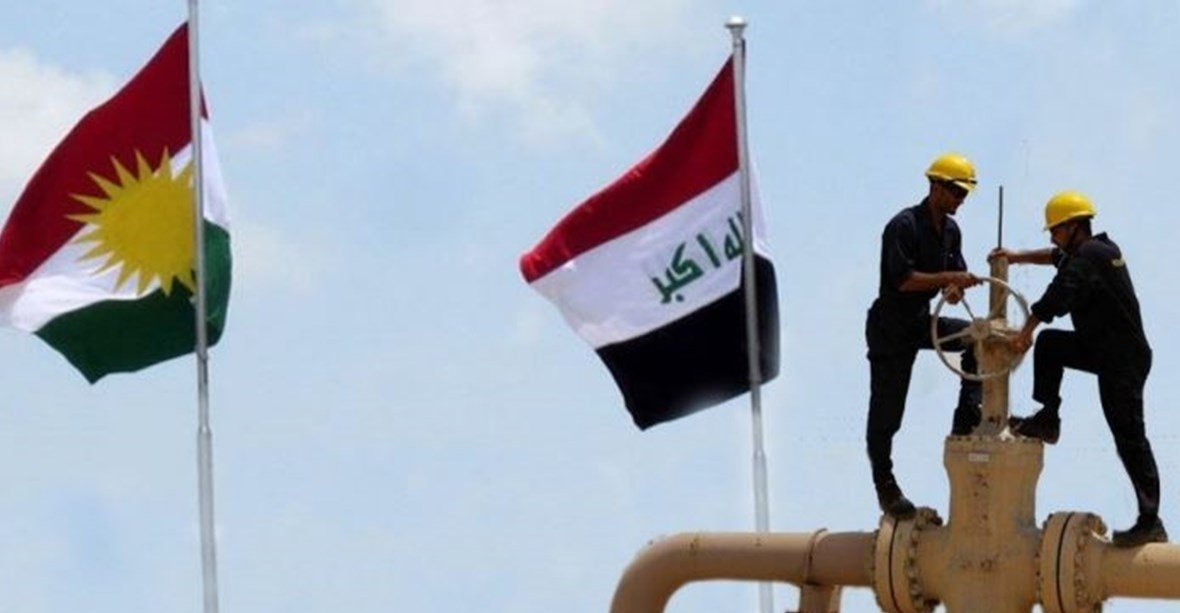Erbil-Washington agreements revive hopes for reviving the Iraq-Turkey oil pipeline.
 Following the energy agreements concluded by the Kurdistan Regional Government with American companies, attention is turning to the tense relationship between Erbil and Baghdad. A breakthrough between the two could accelerate the resumption of the Iraq-Turkey pipeline, which has been halted for years, amid the momentum of regional energy diplomacy, according to the Turkish Anadolu Agency.
Following the energy agreements concluded by the Kurdistan Regional Government with American companies, attention is turning to the tense relationship between Erbil and Baghdad. A breakthrough between the two could accelerate the resumption of the Iraq-Turkey pipeline, which has been halted for years, amid the momentum of regional energy diplomacy, according to the Turkish Anadolu Agency.
After a report by the Turkish agency, translated by Shafaq News Agency, indicated that Kurdistan Regional Government Prime Minister Masrour Barzani had announced, during recent talks in Washington, the signing of energy deals worth $110 billion with the American companies HKN Energy and Western Zagros, the report said that these agreements constitute an important step in strengthening economic relations between the United States and the region.
While the report noted that Baghdad rejected these agreements on the grounds that all investment decisions related to natural resources must be coordinated with the government, as stipulated by the constitution. Therefore, the agreements were deemed invalid, it noted that Kurdistan Regional Government officials assert that these agreements are based on legal precedents.
Meanwhile, the report quoted analysts as saying that the importance of these agreements lies not only in the context of US-Kurdish relations and regional energy security, but also as a potential catalyst for resuming stalled negotiations between Erbil and Baghdad, which could lead to the resumption of oil flows through the Iraq-Türkiye pipeline.
The report addressed the long-standing disputes between Erbil and Baghdad over control of oil revenues, authority over the energy sector, and the region’s share of the federal budget. It added that ongoing political and legal disputes between the two continue to hamper oil exports, resulting in losses estimated at approximately $20 billion.
However, the report noted that a reconciliation between Erbil and Baghdad could open the door to broader cooperation in the energy sector. It quoted Sercan Çalıkan, a researcher on Iraqi affairs at the Center for Middle Eastern Studies (ORSAM), as saying, “Such a reconciliation, following recent agreements between the United States and the region, could pave the way for resolving broader regional energy-related conflicts.”
While Çalıkan noted the strategic importance for Turkey of resuming oil exports via the Kirkuk-Ceyhan pipeline, the report quoted Çalıkan as saying, “Agreement on energy sharing and export infrastructure could accelerate negotiations between Baghdad and Erbil and help resume the technical operations necessary for the resumption of oil flow.”
According to Çalıkan, it is likely that if an agreement is reached, Turkey will continue its support for resolving these disputes and promoting political stability in Iraq, while resuming exports through Turkish territory will enhance regional energy security. He added that “achieving the goal of $30 billion in trade between Turkey and Iraq requires political consensus, along with technical and institutional coordination.”
The report quoted Çalıkan as saying, “Ensuring internal political stability and achieving economic sustainability in Iraq is crucial to advancing major strategic initiatives such as the ‘Development Road’ project, which is considered a significant strategic gain for Turkey.”
The report also quoted Brik Montgrenier, Executive Director of the European Energy Security Initiative, as saying that the recent energy agreements between the United States and the Kurdistan Region are important for energy security in the region. He noted that developing these fields could lead to a significant increase in gas production, and thus in electricity generation, and could allow the region to “sell surplus energy to other parts of Iraq.”
According to Montgrenier, this $110 billion investment reflects strong investor confidence in the region and could open the door to additional foreign investment.
However, the Executive Director of the European Energy Security Initiative warned that the Baghdad government’s rejection of these deals could complicate ongoing negotiations regarding oil exports via Turkey. He explained that “if these deals are threatened or canceled, this will not only harm the negotiations but will also negatively impact investor confidence and threaten electricity security in the region.”
Yassar Al-Maliki, a Gulf affairs analyst for the Middle East Economic Bulletin, was quoted in the report as saying that Baghdad’s rejection of recent energy agreements between Erbil and American companies stems from the lack of a comprehensive energy agreement between the two parties. He also noted that the Iraq-Turkey pipeline agreement, last amended in 2010, is due to expire this year, which presents an opportunity to renegotiate it.
The report quoted Maliki as saying, “This also coincides with the parliamentary elections in Iraq, and we may see a comprehensive political settlement before or after the elections as part of the government formation process.”
The report concluded by recalling that the current agreement regulating the Kirkuk-Yumurtalik pipeline, with a protocol, was signed between Türkiye and Iraq on September 19, 2010, and has been extended for 15 years.
Shafaq.com
